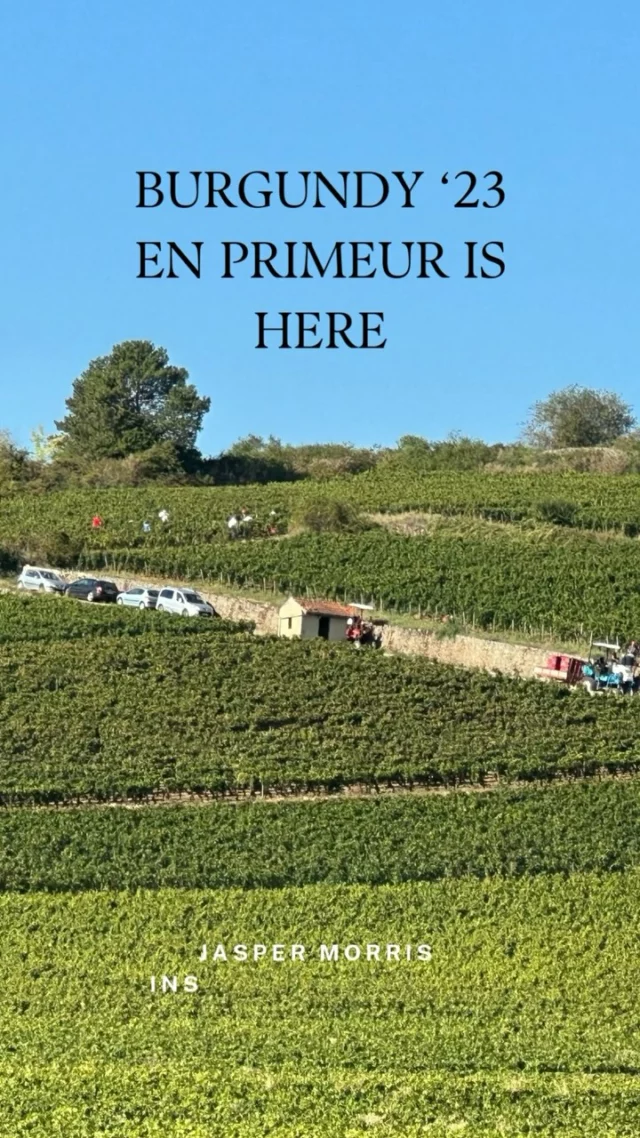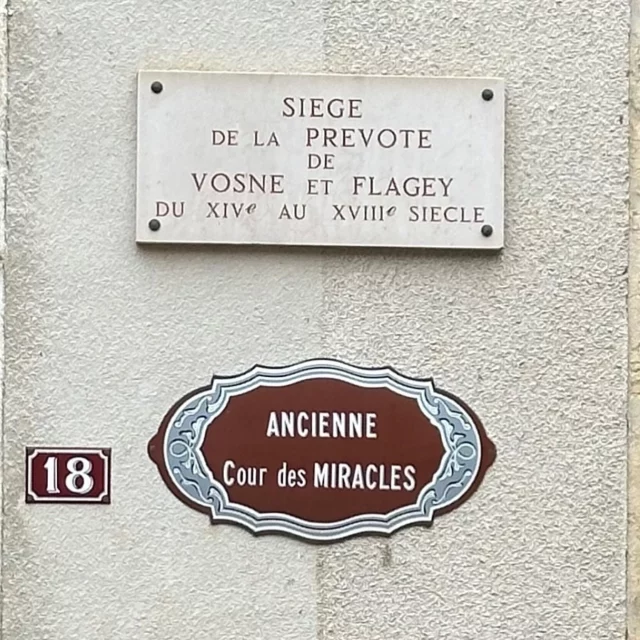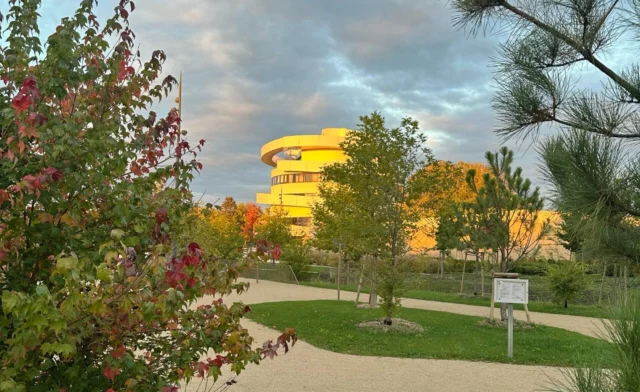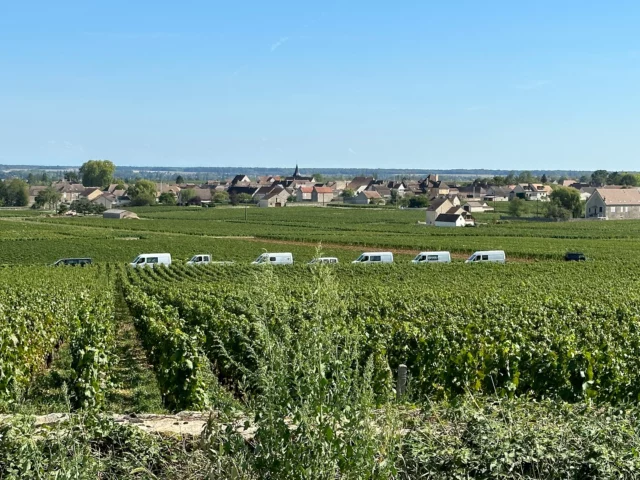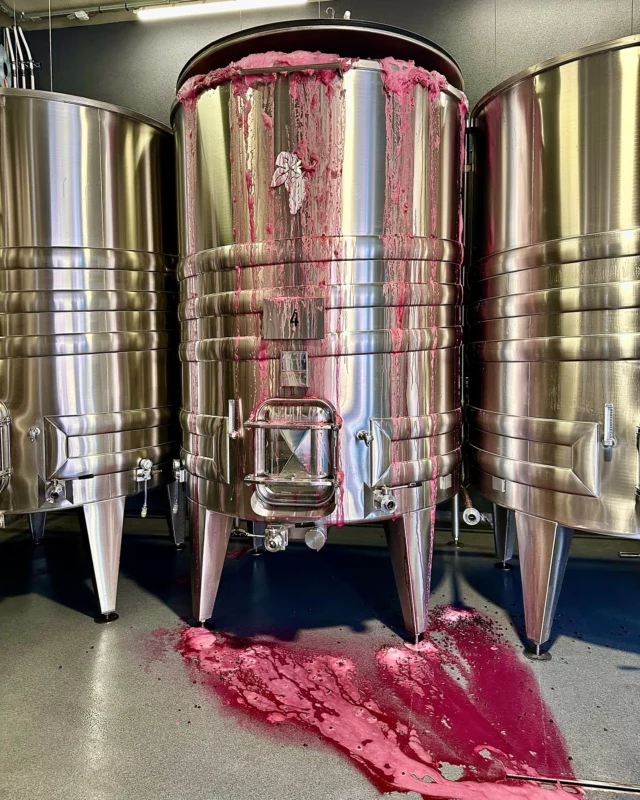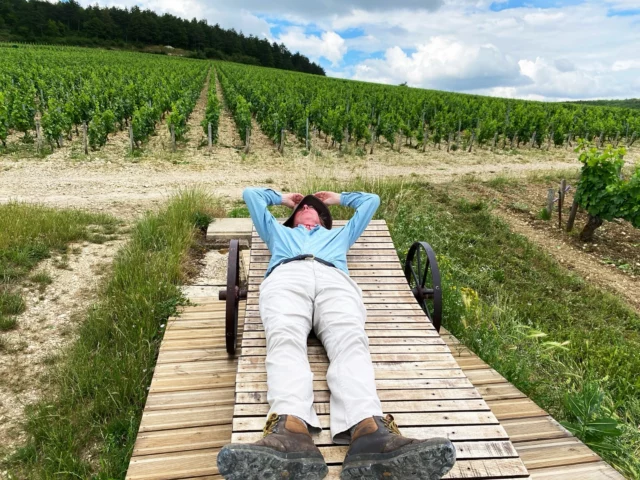2013 Vintage Overview
Updated Sep 2022
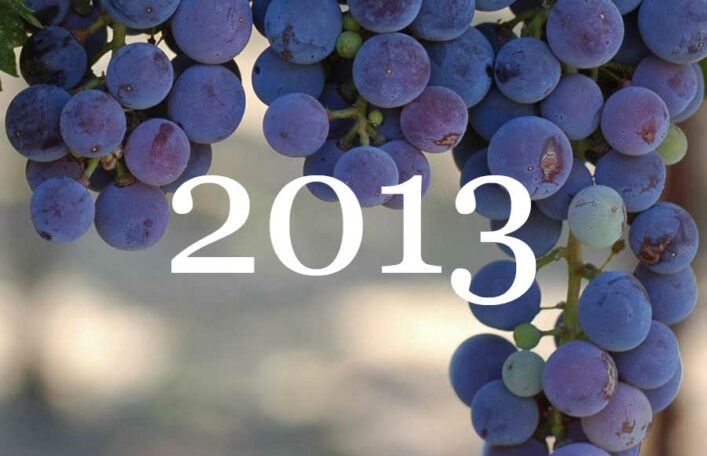
The Weather
It was a miserable start to the 2013 season. Though the depths of winter were relatively mild, it refused to give up its grip easily. March recorded the lowest ever sunshine hours for Burgundy, which retarded early growth – something which on balance pleased the vignerons who feared possible frost damage if the season got off to a precocious start. There were flashes of warmth in April but by and large the weather remained cool and often damp.
May however was a disaster, beginning with heavy flooding on 3rd/4th May. The month remained exceptionally miserable, preventing vignerons from getting their tractors into the vineyards to plough or spray. By the middle of the month there was a serious risk of oidium, but when the temperature dropped again this receded for the time being. Even so, to wake up to snow on the morning of 25th May was something of a surprise.
The cool damp conditions actually gave some beautiful flower displays in our garden but though the wisteria, lilac and apple blossoms all flourished for longer than usual, there wasn’t enough heat to extract the perfume from the blooms, or indeed to allow the bees to fly and pollenate the fruit trees.
The vignerons became more and more demoralised – after three short crops, surely not another one! There had been a good ‘sortie’ – plenty of embryo bunches – but these were beginning to abort in the cold wet weather even before the flowering. June was somewhat better than May though still neither properly dry nor hot, and eventually the flowering got under way in the Côte de Beaune and Mâconnais from around June 22nd, up to forty days later than 2007 or 2011. It passed off pretty well, though vignerons in the Côte de Nuits, where flowering continued through the first week of July in cooler, stormier weather, were less hopeful. These flowering dates suggested harvest beginning in the earlier locations around the end of September, while many in the Côte de Nuits were thinking about the second week of October.
Early July began with mandatory spraying against the ciccadelles (leafhoppers) which can spread the flavescence dorée virus. Much better weather set in from the beginning of July with a sustained period of warm to hot conditions and little or no rain. There was no risk of drought as the aquifers were full after the winter and spring, and the vines were healthy apart from minor incidences of mildew. However sustained heat usually leads to storms and a serious one blew into the Côte de Beaune during the afternoon of Tuesday 23rd July. It did far more than local damage, with hail affecting vineyards all the way from Meursault to Corton. Pommard, parts of Beaune, and lower lying Savigny vineyards were particularly badly hit. The real problem was not just the damage for this year, but the fact that it was the second year in a row of major hail damage in the Côte de Beaune.
Fortunately, the storm came before the bunches had fully closed up, so the damaged berries would drop off rather than cause the bunches to rot, and there does not appear to have been much on-going damage to the wood which would affect the 2014 crop.
More storms were regularly forecast during late July and early August, but none developed into hail over the Burgundian vineyards. They were not a problem in themselves but were disruptive of spraying programs. By the second week of August a pattern of mostly sunny days without excessive temperatures – typically mid 20s – had settled in to the relief of the producers. This clear sunny weather enabled the vines to develop healthily, and there was enough water in the ground to prevent fears of drought. Even so the surrounding countryside was starting to look parched, so a heavy rainstorm on Saturday 24th August was welcome. However fine, even hot, weather returned at the end of the month and into early September.
The next break came with heavy rain on Saturday 7th September followed by a cool week alternating between crisp clear periods and dank drizzly days, continuing for a further week of cool damp dispiriting weather. Small patches of rot began to appear, especially in the white wine vineyards. Harvest seemed a long way away. Rot on under-ripe grapes is not a good recipe. However, all was not lost and the sun returned around the 19th September, with temperatures once again reaching into the mid 20s.
The tension in the days leading up to harvest was as usual a battle of nerves: to hold on for full maturity or to get the grapes in before rot could further diminish an already small harvest. This year the story was complicated by uneven ripening due to the long spun-out flowering, which meant that one plot may be much further along the road than another, or even that some vines within a plot are good to go while others remain clearly unripe. This is where the infinite capacity for taking pains of the finest vignerons will show a dividend.
The first picking crews were out in beautiful weather – another bright sunny day with a crystal clear blue sky thanks to the north wind on Monday 23rd September. For the most part it was a question of well prepared growers choosing to bring in certain plots where the rot was gaining ground or the acidity dropping. Many Côte de Beaune producers got underway seriously from Thursday 26th, picking whites only. It remained warm all week, though turned cloudy and sultry as the wind moved round to the south.
There was much fear of a predicted storm for Sunday 29th, but in fact the weather held through to Saturday evening and Sunday was damp and drizzly rather than anything worse. Monday was better until a very sharp shower in the early evening, in fact a downpour on the northern side of Nuits St Georges depositing up to 50mm of rain.
Most of the rest of the week was not too bad, with misty mornings followed by warm sunny afternoons. However the combination of heavy dew, mist and fog, yet relatively high temperatures was encouraging rot to set in, and once present, to gallop away. Some more backward, less ripe, vineyards seem to be holding up however.
The weather turned markedly worse on Friday afternoon and Saturday morning, markedly storming in parts and appalling in Chablis, with showers continuing everywhere through until Monday 7th October. Many people in the Côte de Nuits were only just beginning and did not know what to expect. While there was less rain in the following week, it became markedly cooler, certainly not very pleasant conditions for the pickers, but not too bad for the grapes. By and large the red grapes held up remarkably well, though remaining whites tended to be very fragile.
First Impressions
Early picked whites, before the rot could get at them, looked sound, but there were worries about those which had not been brought in before the first weekend in October, after which the rot really took over. Reds looked to be on the lean side, of variable consistency, but relatively unaffected by rot and with the possibility of some successes in the Côte de Nuits. I wrote after the barrel tastings: “The wines are at their best further up the quality scale, with the Premiers and Grands Crus. The fresh style of the vintage with naturally lower alcohol levels helps to display the individual terroirs to good effect”.
The wines in bottle
2013 whites have advanced quite quickly and it is not a vintage which I seek out. Lesser red appellations are not very exciting and should probably be drunk up, though there are some interesting Beaujolais crus. I am not yet tempted to broach any of the potentially exciting wines at the upper end of the spectrum, though samples I have seen show a bright crunch red fruit with plenty of energy.
